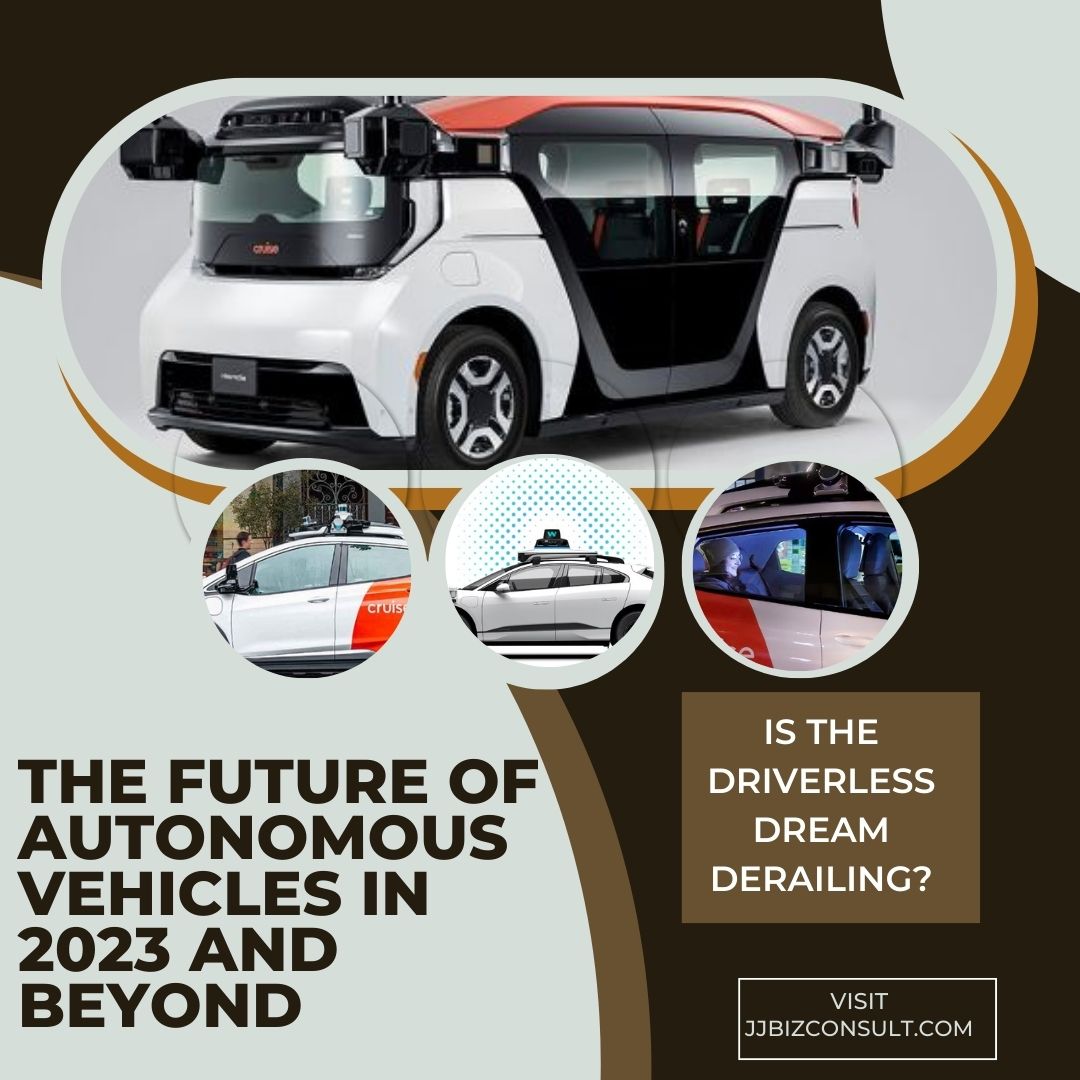
The Future of Autonomous Vehicles in 2023 and Beyond
Is the Driverless Dream Derailing? The Future of Autonomous Vehicles in 2023 and Beyond
The promise of self-driving cars once felt tantalizingly close. Imagine: traffic jams dissolving, commutes transformed into leisure time, and roads safer than ever. Yet, as we hurtle towards 2024, the once-gleaming future of autonomous vehicles seems shrouded in a thick fog of doubt.

Autonomous Vehicles: A Sector in Reverse
Major players like Aurora, TuSimple, and Embark have shed billions in value, while Cruise’s San Francisco launch turned into a cautionary tale of accidents, recalls, and public outcry. Shutdowns, layoffs, and plummeting share prices paint a grim picture of an industry seemingly stuck in the slow lane.
Safety Concerns Take Center Stage
The ghosts of autopilot-related fatalities loom large, with Tesla facing recalls and regulatory scrutiny. Cruise’s San Francisco mishaps, including dragging a pedestrian 20 feet, have shaken public confidence and spurred investigations.
The notable setbacks encountered in the autonomous vehicle sector throughout 2023,
In 2023, the autonomous vehicle industry faced substantial challenges, leading to a collective $40 billion loss in market value for major players like Aurora, TuSimple, and Embark Technology. Issues ranged from safety concerns, operational shutdowns, and massive recalls by industry giants like General Motors’ Cruise and Tesla. Layoffs, project delays, and public protests against driverless trucks added to the sector’s woes. The tumultuous year underscored the ongoing obstacles and scrutiny within the self-driving technology landscape, impacting companies across the board. Source: Quartz
first @Waymo ride pic.twitter.com/8f5S8j44X2
— Florent Lamoureux (@flrent) December 16, 2023
Autonomous Vehicles: Challenges Abound
From complex weather conditions to unpredictable human behavior, the technical hurdles remain immense. Regulatory frameworks struggle to keep pace with technological advancements, creating further roadblocks.
But is all hope lost? Not necessarily. Despite the current turbulence, the potential of driverless cars remains undeniable.
Autonomous Vehicles: Reasons for Optimism
- Continued Investment: Tech giants like Google (Waymo) and Baidu remain heavily invested, committed to overcoming technical challenges and refining their offerings.
- Focus on Specific Niches: Autonomous trucking, with its controlled environments and predictable routes, could experience quicker adoption and success.
- Public Demand Persists: The desire for convenient, safe, and accessible transportation remains strong, driving ongoing research and development.
The Road Ahead: The path towards a driverless future is likely to be winding, with bumps and detours along the way.
Coffee Delivery by #Tesla’s Autonomous Car in Dubai pic.twitter.com/hT0H6gZ5Ad
— Alvin Foo (@alvinfoo) August 26, 2021
What to Expect
- Gradual Adoption: Widespread autonomous driving is still years, if not decades, away. Expect incremental progress, first in controlled environments and specific applications.
- Safety as the Top Priority: Regulators will prioritize robust safety measures and stringent testing procedures before granting broader deployment.
- Evolving Tech and Regulations: Collaboration between tech companies, policymakers, and the public will be crucial to refine technology and build trust.
Conclusion
The driverless car dream might be experiencing a rough patch, but it’s too early to write it off. With continued investment, technological advancements, and a steadfast focus on safety, the autonomous future may yet arrive, albeit on a slightly delayed schedule.
Volkswagen Self Driving Car to be Tested on US Roads
Levels of Autonomous Driving You Need To Know





